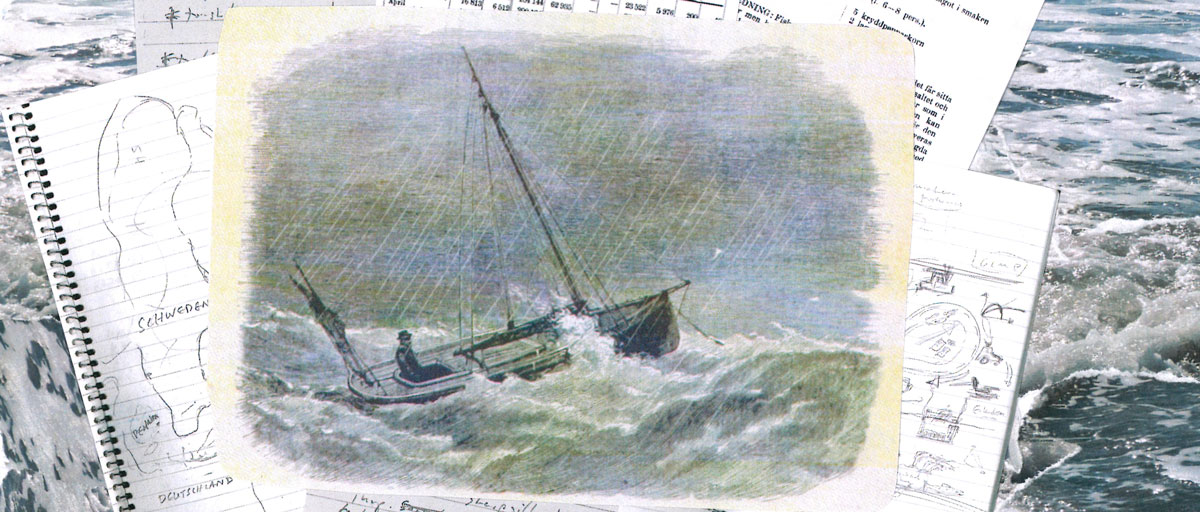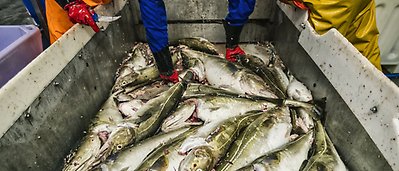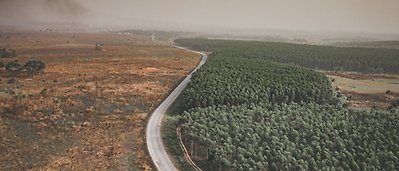
PhD thesis looks at the Baltic Sea fishery and analyses the social-ecological dynamics of long-term changes in the Baltic Sea. Image: J. Hentati-Sundberg
The Baltic Sea
See the Baltic Sea change
PhD thesis looks at the social-ecological dynamics of long-term changes in the Baltic Sea
- Study looks at what motivates fishers to fish what, where and how
- Regulation has been the main driving force for observed changes in fishing styles
- Increased specialization may have unintended consequences
Sustainable management of natural resources requires an in-depth understanding of the interplay between social and ecological change.
In December 2015 Jonas Hentati-Sundberg defended his PhD-thesis, entitled Sea Change. Hentati-Sundberg has looked at long-term changes in the Baltic Sea, both in ecological dynamics, in fishers’ behaviour and in fisheries policy.
"We have been lacking empirical and quantitative long-term studies of changes in social-ecological systems," says Hentati-Sundberg.
"My thesis contributes to start filling this gap and provides examples from the Baltic Sea."
Driving changing seas
To describe fishing activities in the Baltic Sea Hentati-Sundberg and colleague Wijnand Boonstra were interested in combining quantitative data on fish catches to more qualitative data concerning what motivates and drive fishers to fish what, where and the way they do.
The duo developed the concept 'fishing styles', the first paper in the thesis, to describe and discuss how fishers' behaviour varies. The concept can be useful for policy makers in designing policies that create better conditions for maximizing compliance and reducing enforcement costs. Read more about fishing styles
The second paper in the thesis takes a closer look at fisheries regulation in the Baltic Sea and how it has changed since 1995. Using a new type of methodology the authors show that the policy changes shows a trend towards increased micro-management.
In the third paper Hentati-Sundberg and colleagues look at how fishing styles in the Baltic Sea have changed since 1995, and relate these changes to the dynamics of regulation over the same time-period that were identified the second paper and to fluctuations in fish stocks and in prices. Read more about this analysis here
"Regulation has been the main driving force for observed changes in fishing styles, and has prompted significant specialization and decline in flexibility for fishers over time. These changes may represent a looming risk for the long-term sustainability of the system"
Jonas Hentati-Sundberg
Managing complex systems
Setting appropriate policies for the governance of the Baltic Sea can in many ways benefit from insights into these social-ecological dynamics. As mentioned above taking a diversity of fishing styles into account is beneficial for policy compliance.
Another example of where this insight is important relates to regulating catches based on information about the size of the fish stock.
Paper four in the thesis zooms in on one particular fishery - the pelagic trawl fishery for sprat and Atlantic herring.
The study shows that misreporting occurred both with regards to fish catch quantities and to the composition of the catch in terms of species. This misreporting can cause poorly adjusted fishing quotas to be set.
"Fishing quotas are set in relation to an estimate of the total fish stock, and fish stock in turn is calculated partly based on the catches that fishers report," Hentati-Sundberg explains.
"Systematic errors in the reporting will influence the quality of scientific data and hence the credibility of political decisions." Read more about the study here
Future policy options
Hentati-Sundberg's work show that the Baltic Sea fishery functions as a system, and this requires a re-think in how it is managed.
"Currently we see a trend towards increased specialization in the fishery, which is an unintended and previously disregarded effect of fisheries management," he says.
At the same time, there are big uncertainties around what is being fished and how much fish there is in the sea. Is it possible to avoid the current system trajectory towards micro-management, specialization and a deteriorated evidence base for political decisions?
"A big part of this is most likely to combine the current top-down style of management, with an increased part bottom-up management. Offering bigger flexibility in the fishery is a way to build resilience for unexpected changes in the ecosystem and the economy," Hentati-Sundberg concludes.
citation
Hentati-Sundberg, J. 2015. Sea Change - Social-ecological co-evolution in Baltic Sea fisheries. Doctoral Thesis. Stockholm University.
Jonas Hentati-Sundberg's research focuses behavioral adaptions in fishers, drivers of long term social-ecological change in fisheries and links between complex ecosystem change and long-term seabird demographics and behavior.






